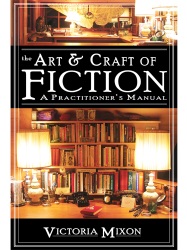I would like to write in Historical, Fantasy, and general Fiction genre. I am currently researching about the Tudor period for a novel I would someday like to write. Also I am considering graduate schools. Do you have any advice on good programs for my interested genres?—Melanie Lambrecht
Ask your BA professors first. They know more about who’s working in academia and where than anyone outside that sphere.
Grad school is a place to hone your understanding of your chosen field. So who do you want supervising you? The people in your field you admire! Lots (and lots and lots) of publishing authors these days teach grad school. Research your favorite authors and find out if and where they teach.
Personally I’d love to take classes from Elizabeth Tallent, who is now teaching at Stanford—I’ve been reading her since the 1980s.
Grad school is also where lots (and lots and lots) of aspiring writers make useful contacts with professional authors who can help them break into the field. So once you get there be aware: you’re there for the sake of your career, not as an extension of dorm life. Work really hard. Do whatever you have to do to become really good at this craft. Successful authors who teach can’t possibly give a leg up to every single student they see in their classes, so they watch only for the ones who look like they’re going to make it even without help. Those are the students with the commitment and skills to make an inch of assistance go a mile. And being able to give each one of them an inch gets a lot of talent a whole lot of miles without burning out the teacher.
Don’t get caught up in the competition to be Teacher’s Pet, just do your work and prove it: you’re worth paying attention to.
Can you succeed as a writer without grad school? Absolutely. I don’t have an advanced degree. Hasn’t stopped me from teaching myself more about the craft of fiction than almost anyone I know and developing a thriving business as a high-level indie editor based on that knowledge. All it means is that I can’t teach at an accredited college, so some of the smaller, less visible writers conferences won’t invite me to teach workshops. Bummer for them—those folks won’t even invite critically-acclaimed authors who’ve been nominated for PEN awards and the Pulitzer Prize. (Seriously. Then they complain about the trouble they have attracting enough writers to make their bills every year.)
Proving your commitment and skills, being respectful of others’ gifts of their time and attention, taking the limitations of certain aspects of the industry in stride—this is how you’re going to have to behave to succeed in the world of publishing, anyway.
You might as well get started now.
“The freshest and
most relevant advice
you’ll find.”
—Helen Gallagher,
Seattle P-I
The Art & Craft of Story


